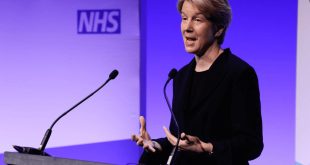12 months ago, 2019 ended with a promise within the Queen’s Speech from the then newly elected Conservative Party government to “carry out a Review of the Gambling Act”. Now, 2020 is ending with that promise being fulfilled.
On 8 December 2020, the Gambling Act Review was launched, with a Call for Evidence that runs until midnight on 31 March 2021, following which the government says it will “assess the evidence presented, alongside other data, with the aim of setting out conclusions and any proposals for reform in a white paper next year”.
In summarising the purpose of the Review as being to “ensure gambling laws are fit for a digital age”, its accompanying government press release adopted a phrase used by the former Deputy Leader of the Labour Party, Tom Watson, back in February 2019.
This underlines not only the cross-party support for reform but also that the main focus of the Review is clearly to be on whether increased protections for online gamblers (and young people) are needed.
No surprise there because this is precisely the same issue that has most excited criticisms throughout the course of this year from, amongst others, the Gambling Related Harm All-Party Parliamentary Group, the House of Lords Select Committee on the Social and Economic Impact of the Gambling Industry, the recently created pressure group Peers for Gambling Reform, and numerous prominent sections of the mainstream media.
That’s not to say that the Gambling Commission itself is not immune from Parliamentary scrutiny. It has received biting criticisms this year from, amongst others, the National Audit Office, the House of Commons Public Accounts Committee and the Gambling Related Harm APPG, one of whose Vice-Chairs, former Tory leader Sir Iain Duncan-Smith has recently gone so far as to call on the government to “get rid of the Gambling Commission altogether and institute [in its place] a body as powerful as, say, Ofcom”.
It’s also not to say that the land-based gambling sector will not suffer collateral fallout from gambling reforms that are primarily targeted at the online sector. The potential for imposition of greater restrictions on gambling advertising and marketing promotions is an obvious example, but is there also a real possibility of reform that might benefit the land-based sector? More on that later.
Immediately following launch of the Review, all interested parties proclaimed effusive welcomes to its arrival, albeit for widely contrasting reasons.
So, now the dust has settled, it’s time to polish my crystal ball. What exactly does 2021 hold insofar as the Gambling Act Review is concerned and how could it affect your business? As always, this is a personal view. Others may (and no doubt will) disagree, but what follows is my best shot at fortune/misfortune telling for the future of the UK’s gambling industry over the next 12 months.
Forecast 1: A lesser Gambling Act Review agenda
I confidently forecast that we will see more issues removed from the agenda of the Gambling Act Review before a White Paper even comes before Parliament for debate next year. 2020 has already seen imposition on the online sector by the Gambling Commission of a credit card ban, more robust customer interaction requirements and new age and identity verification requirements, as well as a compulsory High Value Customer incentivisation regime for all UK licensed operators.
In early 2021, we can expect introduction of more prescriptive customer interaction requirements (including compulsory affordability assessments at financial thresholds set by the Commission) and, building on the BGC’s voluntary Game Design Code, a suite of mandatory controls on online slots.
That’s not all. When announcing the launch of the Gambling Act Review, the government also confirmed that the minimum age for playing the National Lottery will increase from 16 to 18 by October next year, a development that shortens the odds on a similar change being introduced for society lotteries too. In addition, with a DCMS call for evidence on loot boxes in video games having commenced three months ago, some might almost wonder what else there will be to debate.
The answer is a lot. The Gambling Act Review’s Terms of Reference are very broad. I can think of hardly anything touching upon the industry, its regulator and its customers, as well as children, young and other vulnerable persons, that could not be brought within the Review’s wide-ranging scope.
Forecast 2: The Gambling Commission will survive to fight another day
Although I cannot discern from my crystal ball even the wispiest image of Neil McArthur standing on the steps of Victoria Square House, belting out (in true karaoke style) Gloria Gaynor’s famous 1978 hit, I think it fairly certain that the Gambling Commission will survive. As I suggested in my SBC News article back in May, from the industry’s perspective it may well be a case of “better the devil you know …”.
That said, do not be surprised if we see the introduction of quite substantially increased application and annual licence fees to fund correspondingly increased numbers of Commission staff and, in all probability, increased rates of regulatory and enforcement action by the Commission. On that score, I strongly recommend that all UK licensed operators update their Money Laundering and Terrorist Financing Risk Assessment (and, subsequently their AML/CTF Policies and Procedures) after carefully considering the Commission’s newly published annual ‘Assessment of ML and TF Risks within the British Gambling Industry’.
In his foreword to the government’s Call for Evidence, the ‘Gambling Minister’, Nigel Huddleston, has flagged up that “DCMS is already considering proposals from the Gambling Commission for a fees uplift to reflect the increasingly complex nature of the industry it regulates”.
Tied in with this, of concern to many if an appropriate regulatory balance is not maintained is the need for yet more additional funding of the regulator to tackle illegal black market gambling operators. The Government appears to recognise this threat, having expressly raised in the Review’s Terms of Reference the question of the Commission’s “powers and resources …. to tackle unlicensed operators”, something that the Commission appears not yet to have regarded as an insurmountable challenge. It will be interesting to see whether it changes its opinion when faced with the recent PwC finding that British consumers have visited unregulated gambling sites 27 million times in just one year.
Forecast 3: Compulsory RET Levy
This too close to call at this stage. It is evident from the government’s response to the House of Lords Select Committee that the issue of funding flows to the Gambling Commission has considerable bearing on whether to introduce a compulsory RET levy in place the of the current voluntary system.
I believe all possibilities remain open in this respect, given confirmation that the government will gather evidence as part of the Gambling Act Review in order to determine how best the regulatory and societal costs of gambling can be recouped. However, the National Audit Office report from February 2020 could be highly influential.
Forecast 4: Enhanced player protections through technology
Despite the government acknowledging that “the steady industry growth and shift to online have seen neither a marked increase in overall gambling participation, which has remained broadly stable between 45% and 48% of adults for the past five years, nor an increase in population problem gambling rates”, the protection of online gamblers, including rules to minimise the risks associated with online products themselves, and the use of technology to support harm prevention will remain at the forefront of the Gambling Act Review.
A government comment within the Gambling Act Review Terms of Reference and Call for Evidence that has puzzled some is its view that “a stable problem gambling rate does not necessarily indicate a stable quantum of harm”. In my view, the context within which that comment is made indicates the government has in mind the potential risk of deeper harms arising from “more intensive” gambling products that are “accessible at any time of day without direct human interaction”, accompanied by “much more advertising, and involving increasingly rapid innovation”.
With that in mind, I foresee more prescriptive requirements being introduced that will require UK licensed operators to enhance player protection by investing more in technological solutions. The cost of this could well be outside the bounds of affordability for smaller remote operators, leading to greater numbers exiting the British market and/or greater consolidation of the market.
Forecast 5: Greater controls on online gambling accounts
Another key government comment is that it wants to “make sure customers are suitably protected whenever and wherever they are gambling, and that there is an equitable approach to the regulation of the online and the land-based industries”.
Although it doesn’t necessarily point to absolute parity with restrictions applicable to land-based gambling, it’s hard not to imagine the above comment will inevitably have some bearing on the issue of online stake, speed and prize limits. It’s not just that because, despite the Gambling Commission’s own fast-moving action in relation to formalising affordability checks, the Call for Evidence raises questions specifically directed at the imposition of greater controls on online gambling accounts, including deposit, loss, and spend limits, whether imposed “on a universal basis or targeted at individuals based on affordability or other considerations”.
Without copping out on this forecast, I most certainly foresee things changing on some, if not most of the above, fronts. That said, it is reassuring that the government has emphasised in its response to the House of Lords Select Committee Gambling Industry Report (also published on 8 December) that “a robust evidence base is essential to effective policy making and regulation”. This is, after all, a ‘Call for Evidence’, not a ‘Call for Opinion’.
Combine that with an expectation that the White Paper emerging from the Review will take account of the majority who enjoy their gambling experience, as well as the minority whose experience is marred by gambling-related harms, and there is good reason to hope that sensible, balanced and evidence-based policy decisions will be made in due course.
Forecast 6: Some relaxation of land-based gambling regulatory requirements
It must also be noted that some relaxation of land-based gambling regulatory requirements (particularly in the casino sector) is potentially on the cards, the government recognising significant changes in the economy around it over the past two decades.
Encouragingly, the government has noted customers have new expectations for ease of transaction in an increasingly cashless world, concluding that the Review “must consider whether the rules governing payment methods in the land-based sector still serve a useful purpose in preventing harm and the degree to which they pose limits on innovation and customer choice”.
I forecast some welcome change being introduced in this respect and conceivably extended in other respects too (including gaming machine entitlements, stakes and prizes in casinos) in order to help a sector that has suffered very considerably more than most from Covid-19 restrictions in 2020.
Forecast 7: No affiliate licensing
So strong have been calls by the House of Lords Select Committee (and others) for introduction of a system requiring affiliates to be licensed that, in June this year, RAiG made an about-turn decision to support in principle a licensing or registration system for affiliates.
I have always held the view that the Gambling Commission would be unlikely to support such a change because it might serve to erode the principle of UK licensed gambling operators being responsible for the actions of their affiliates.
It is interesting therefore to see that, in its response to the Select Committee, the government has expressed its own concern about “the potential for a move to licensing affiliates to reduce operator accountability for the actions of their affiliates” and its encouragement to “licensees and the affiliate industry to continue working together to raise standards”.
That does not necessarily mean that the government’s position may not be swayed by responses to its Call for Evidence, but my forecast is for no change in this respect.
Forecast 8: Gambling Ombudsman
Concerns have been growing for some time that the current ADR system does not work as well as intended. As long ago as 2016, one of the Gambling Commissioners raised the question at the first ever ‘Raising Standards’ conference whether a Gambling Ombudsman should be appointed to determine consumer complaints. Although that went nowhere, it was raised again by Tom Watson as a proposal in June 2019.
Not surprisingly, given his former role as advisor and speech-writer to Tom Watson, James Noyes (co-author of a Social Market Foundation report entitled “Gambling review and reform –Towards a new regulatory framework”, published in August).
As other calls this have shown, they are by no means alone and I forecast that similar calls for a Gambling Ombudsman will feature in many replies to the following Review question: “Is there evidence of a need to change redress arrangements in the gambling sector?”. I certainly foresee it featuring more prominently in the Gambling Act Review process than the House of Lords Select Committee’s ‘duty of care’ proposal of which there is no specific mention in the Call for Evidence.
Forecast 9: Advertising and sponsorship: more research
Taking into account what the government has said about “a robust evidence base” being “essential to effective policy making and regulation”, I foresee no advertising ban being compulsorily imposed, at least in the near future, pending more definitive research on the impact of gambling advertising on adult gambling behaviours, bearing in mind that, to quote the government in its response to the House of Lords Select Committee, the existing evidence base does not demonstrate a causal link between (a) exposure to gambling advertising that complies with the current rules and (b) problem gambling.
Similarly, I foresee no sponsorship ban pending more research. In this respect, the government has said in that same response that it has not seen evidence demonstrating a causative link between (a) exposure to or familiarity with gambling operator logos seen on player shirts and pitch-side hoardings or signage (that appear on screen during televised matches) and (b) problem gambling in children or adults.
It has added that whilst it is aware of studies that suggest a link between awareness of betting brands and intentions of young people to gamble in the future, it has taken account of expert evidence given to the Committee that “limited weight should be placed on findings which centre on intention to gamble rather than actual gambling behaviour”.
Research-based evidence (not opinion) should be the determining factor in these respects. However, therein lies the weakness in my forecast, i.e. “should be” does not necessarily mean “will be”.
Forecast 10: My firmest forecast of all
Finally the forecast in which I place my firmest level of confidence, namely all of the above issues will still be the subject of very heated debate as 2021 slips into 2022 this same time next year.
Finally: A hope for 2021
I will add to the above a hope for 2021, if I may. That is that the Gambling Act Review more than lives up to the government’s stated ambition to ensure that it achieves “an appropriate balance between consumer freedoms and choice on the one hand, and prevention of harm to vulnerable groups and wider communities on the other”. I am sure we would all raise a glass to that.
Happy Christmas!
___________________
David Clifton – Director – Clifton Davies Consultancy Limited










